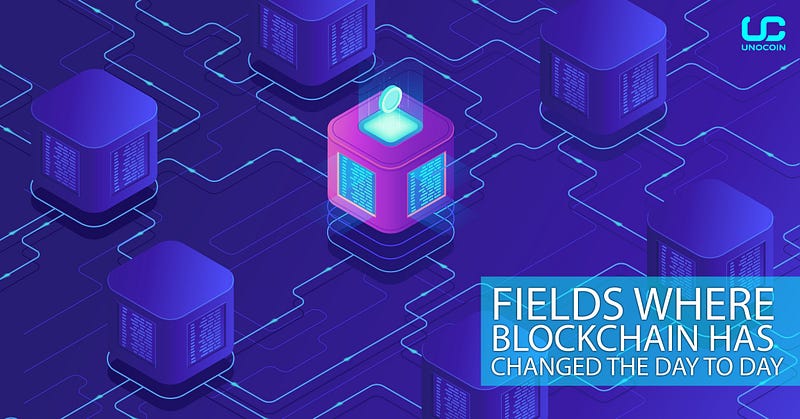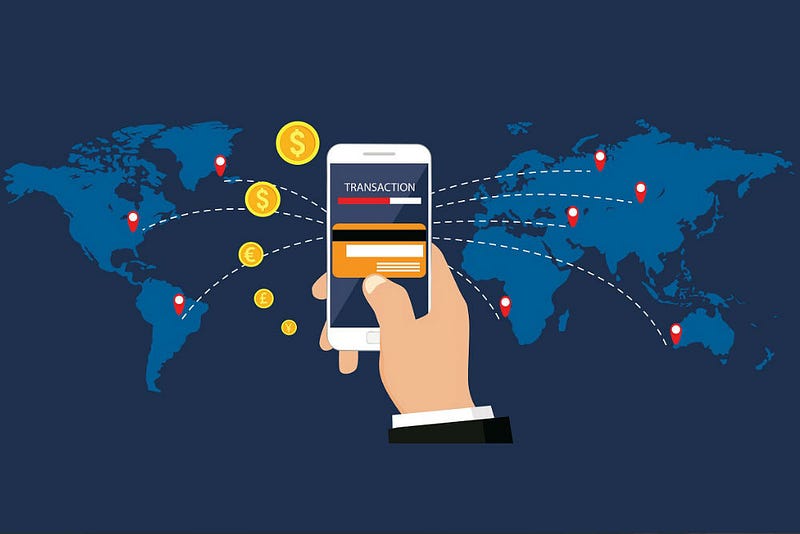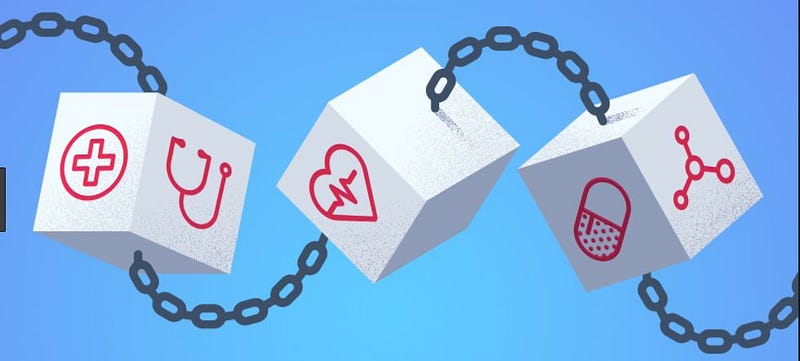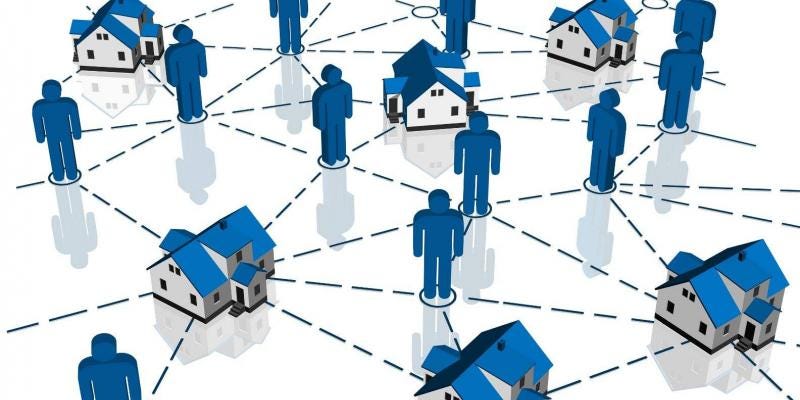
Blockchain technology is most popular as the technology that underpins Bitcoin. However, the digital ledger system is characterized by the decentralized, secure and distributed network it is built on. This has led to the technology being adopted across various industries and operational domains. Following are some of the fields that have seen a change in their regular operations due to an implementation of the Blockchain technology.
The Banking and Fintech Industry

While the banking sector forms the backbone of most economies across the world, there are a few issues that need to be addressed in the field. Banks these days, not only store money for the public but also facilitate and handle fund transfers and transactions for them. Adoption of the Blockchain technology in the field could serve as a secure foundation for all financial platforms that facilitate transactions and funds transfers. Availing loans, saving funds, completing monetary transactions, borrowing and lending money is all possible using platforms built on the Blockchain technology.
SALT (Secured Automated Lending Technology) is a membership-based lending and borrowing platform, that enables the users to get loans with the cash security in terms of national currencies by collateralising blockchain assets like Bitcoin. WeTrust and ETHLend are a couple of financial platforms that are also based on the blockchain. They enable activities like buying insurance, starting savings accounts and peer-to-peer lending. A lot of brick and mortar banks have also adopted the blockchain technology for long-distance funds transfer and other normal operations.
The Healthcare Industry
The healthcare industry requires a major upgrade in operations and management across the globe. Storage of healthcare records and clinical data is one field where the sector could use the Blockchain technology. Cases of error, fraud, and lost records in the past, has led to insecurity in the minds of the consumers causing them to distrust healthcare providers.

Blockchain technology can re-establish this trust between healthcare payers and providers by providing a decentralized and secure platform for storing medical records. These records can be stored accurately and safely transferred to and accessed by the doctors and people who are authorized. Due to blockchain technology, all of this is possible without the fear of having the data lost, tampered or misused against an individual. Estonia’s government has adopted the technology to secure its citizens’ medical data. The country’s eHealth Authority has signed a deal with Guardtime, a blockchain pioneer, for the same reason.
The Education Industry
A few processes in the current education scenario are extremely slow, expensive and inefficient viz. the process of conducting standardized tests (like the SAT, GRE etc.), sharing the exam scores with colleges or even obtaining transcripts. There is an additional fear of losing these credentials or documents in the transaction, leading to huge inconvenience for the students. The blockchain technology can bring in the elements of transparency, immutability, collaboration. It will also eliminate the requirement of intermediate authorities for all processes. All concerned parties interested in viewing academic credentials can access authentic records on the blockchain network. As the vision of the Ledger Project, the education sector could be impacted to an extent where everything we learn is tracked through on the blockchain. This is set to happen by 2026.
While creating a portfolio on a blockchain network is one of the major advantages, the technology could also facilitate accelerated training and education by creating a peer-to-peer learning network. This would facilitate the community to contribute to the others’ learning. E-learning platforms like LiveEdu can also bring a change in how the online decentralized education system works.
The Energy Sector

Blockchain technology can allow producers of wind energy and solar energy to directly provide electricity and power to consumers. It can also facilitate innovative and sustainable forms of energy as the community will now have more transparency in their operations.
Blockchain technology can introduce and popularize the concept of peer-to-peer trading of electricity without the need for an intermediate authority. Lithuanian blockchain startup, WePower enables financing investment in green energy projects along with the trade of sustainable power at scale. PowerLedger is another decentralized energy trading platform that carries the aim to trade surplus energy among common people, commonly at apartment-level to reduce the interference of energy companies and decentralize the energy sector.
The Insurance Industry
Professionals in the insurance industry are welcoming Blockchain technology to bring in innovation, transparency, cost reduction and process efficiency. Thus, enabling revenue growth for the industry. What needs attention in the current insurance service system is the lack of trust and high costs.
IBM’s Blockchain for insurers enables faster transactions, data exchange and provides transparency to all parties in a network. The pervasive security of a blockchain network facilitates greater trust and transparency in distributed ledger transactions. WeTrust is a decentralized platform for financial products which designs insurance contracts in a simplified manner to avoid chances of misguiding or cheating on a consumer. This would also improve the chances for getting claims approved.
The Legal Industry
The legal industry is a sensitive domain that deals with a lot of data on individuals, corporations, and entities. This calls for secure databases and transactions to ensure trust between the service providers and customers. Besides improving the operations involved in the legal industry, Blockchain can also eliminate the need for long legal processes in some domains like inheritance of assets.
For instance, Safe Haven, a digital inheritance blockchain platform, gives users the opportunity to secure digital assets so that the investor’s legacy can be protected and transferred in a transparent and secure manner. The law faces issues and lack of trust when it comes to protection of intellectual property in the current digital age. Blockchain-based entities like NKOR promise to have a platform that allows users to register their intellectual property and anchor it to the records ledger.
The Real Estate Sector

Blockchain technology can streamline the real estate ecosystem by allowing people to securely and efficiently share data and money. Every real estate transaction has to be processed through the multiple listing services (MLS), which keeps a record of all agent-client mappings, listing agreements, contracts, and appraisals. However, the MLS is highly fragmented which makes it extremely difficult for people (non-industry-professionals) to access the data. Having outdated systems hampers an agent’s ability to make comparisons and spot trends before he/ she seals a deal.
Blockchain can address all these concerns by introducing a decentralized and secure data storage system. Ubitquity is a blockchain-secured platform that is working towards eliminating errors in public records, forgeries, illegal deeds and other process inefficiencies. Since most of the customers of the real estate system get frustrated about the commission rates that soar up to 6 percent, optimization of the same becomes mandatory. Australia based Deedcoin is trying to make amendments to the commission rates through the cryptoasset-powered platform. Deedcoin’s platform and proprietary tokens can bring those rates down to just 1%.
Also Read:
https://blog.unocoin.com/unocoin-stance-on-recent-rbi-notice-ed36c4aec17f



![Fundamental Analysis in Crypto [Updated Guide] A Comprehensive Guide to Asset Valuation.png](https://blog.unocoin.com/wp-content/uploads/2024/11/A-Comprehensive-Guide-to-Asset-Valuation-218x150.png)